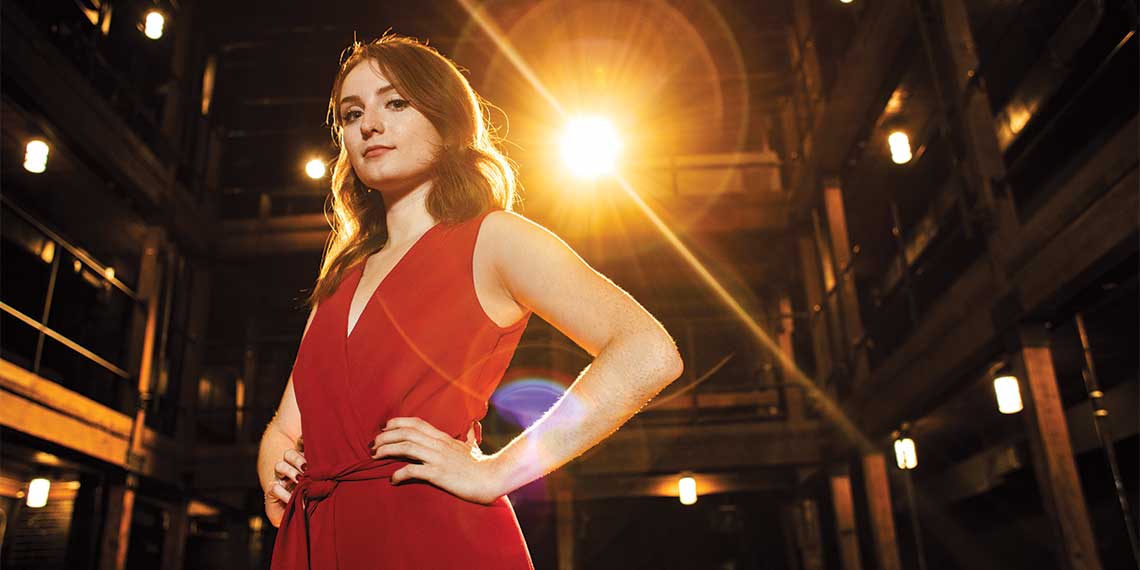
Growing up in Washington, DC, Michaela Lunz always felt at home in a museum, where intellectualism and creativity so often happily cohabitate.
“I just loved going to museums and talking to people about the art,” Michaela said. “Not in a really pretentious way, but in a look-at-these-fun-facts way.”
Michaela’s interest in engaging with fellow patrons translated well into the conference project for her First-Year Studies course, “Art and History,” where she studied museum behavior at the Museum of Modern Art in Manhattan.
“I went in front of Starry Night and observed people interacting with the piece,” she said. “I was really interested in modern museum behavior and whether the way museums are set up is engaging for modern audiences.”
“Art and History” provided a proper introduction to the artistic period Michaela found herself returning to in conference work: late 19th- and early 20th-century art, particularly in France. She even seamlessly integrated her interests in psychology and theatre when she was tasked to write a historically based script for her playwriting class.
“I wrote a play about Degas’ ballet dancers and the history— they’re actually not just pretty dancers; there’s actually a sexual economy going on with the older men who are funding the ballet,” she said.
For Michaela, an audience’s relationship with art is as important as the work itself. Her conference work often examines how a viewer’s relationship with a piece can influence popular attitudes and social policy. For her psychology class, “What’s in a Name: Perspectives on Poverty,” Michaela analyzed the late 19th-century documentary photography of America’s poor populations, particularly the work of Jacob Riis.
“I started with the question of ‘What is it about an image that is so impactful it inspired pro-social behaviors in the American public?’” she said. “I applied psychological theories of emotion, the mechanisms behind emotions that explain how we react to images.”
Michaela recently interned at an art gallery and discovered she loved researching, interpreting, and writing about the works on display.
“I hope to work for a company that does unconventional museum tours, and they look for people with theatre and art history backgrounds,” she said. “Hopefully that’s the next step.”
Hometown Pelham, NY & Washington, DC
Studies Art history, theatre, psychology
Pronouns She/her
Photo credit: Don Hamerman
What is it about an image that is so impactful that it inspired pro-social behaviors in the American public?